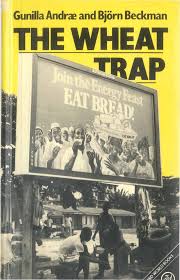Björn Beckman was a Swedish political economist who taught political economy in Nigeria, Ghana and Sweden. He taught at Ahmadu Bello University, Zaria, between 1978 and 1987. He made invaluable contributions to Marxist development studies. He died in 2019 aged 81.
He wrote several substantive articles that were published by the Review of African Political Economy (ROAPE) in the 1980s. Four of these and two important books he wrote with his partner Gunilla Andrae are available from the links below:
‘Imperialism and capitalist transformation: critique of a Kenyan debate’ (1980) – Björn critiques the debate over whether the dependency model is applicable for Kenya. He finds faults with both sides of the debate and argues that it is only in terms of the general requirements of capital accumulation that the relation of the state to the underlying class forces can be adequately understood:
https://www.scienceopen.com/hosted-document?doi=10.1080/03056248008703440
‘Imperialism and the national bourgeoisie’ (1981) – Björn argues that an adequate analysis of imperialism has yet to be developed. This should integrate the study of class formation in the periphery with its effects on the system as a whole and vice versa. His analysis of the Nigerian case shows how this might be done. Most importantly he shows how imperialism protects local capital from the demands of the oppressed classes, while local capital through control of the state provides monopoly conditions for imperialist expansion.
https://www.scienceopen.com/hosted-document?doi=10.1080/03056248108703474
‘Whose state? State and capitalist development in Nigeria’ (1982) – Björn analyses the character of the Nigerian state and the nature of its relationships with capital foreign, local and capital in general. Bjorn sees the state is primarily an instrument for promoting the accumulation of capital in general, despite being controlled by local capital. The state is also influenced by the particular success of the local class struggle.
https://www.scienceopen.com/hosted-document?doi=10.1080/03056248208703487
The Military as Revolutionary Vanguard: a critique (1986) – Björn said that the crisis of Nigerian ruling class politics in the wake of a collapsing oil economy had made sections of the left pin their hopes to a left military intervention. This essay is a critique of such positions. It is particularly concerned with recent attempts to offer scientific justification for attributing a leading revolutionary work role to the military.
https://www.scienceopen.com/hosted-document?doi=10.1080/03056248608703699
The Wheat Trap: Bread and Underdevelopment in Nigeria (Andrae and Beckman 1985)
This book analyses the on the political economy of Nigeria’s food system, the entrenchment of wheat import dependence and the failed project of wheat import-substitution. The oil boom of the 1970s fuelled large scale migration of villagers to towns, changes in household consumption patterns and massive food imports, such as wheat, to meet the demands of the growing urban population for cheap, clean, easily available and easily consumed food.
To read this book, click this link: https://ivavalleybooks.com/wp-content/uploads/2025/06/The-Wheat-Trap-Bread-and-Underdevelopment-in-Nigeria-Gunilla-Andrae-Bjorn-Beckman.pdf

